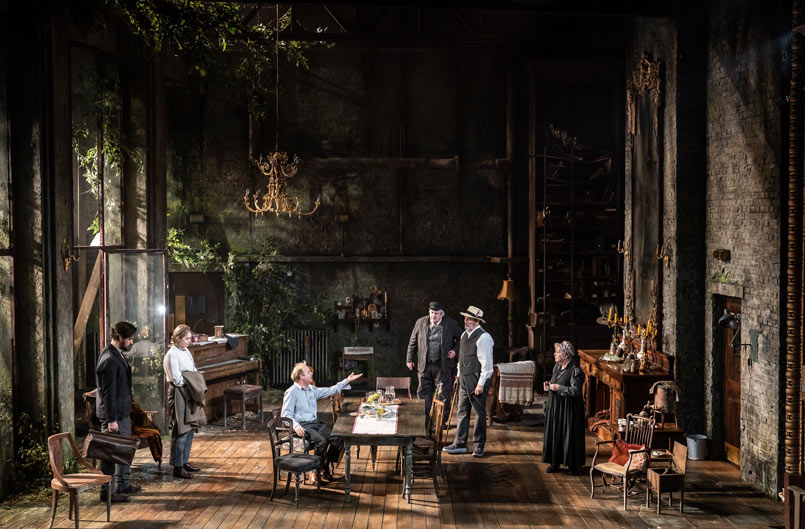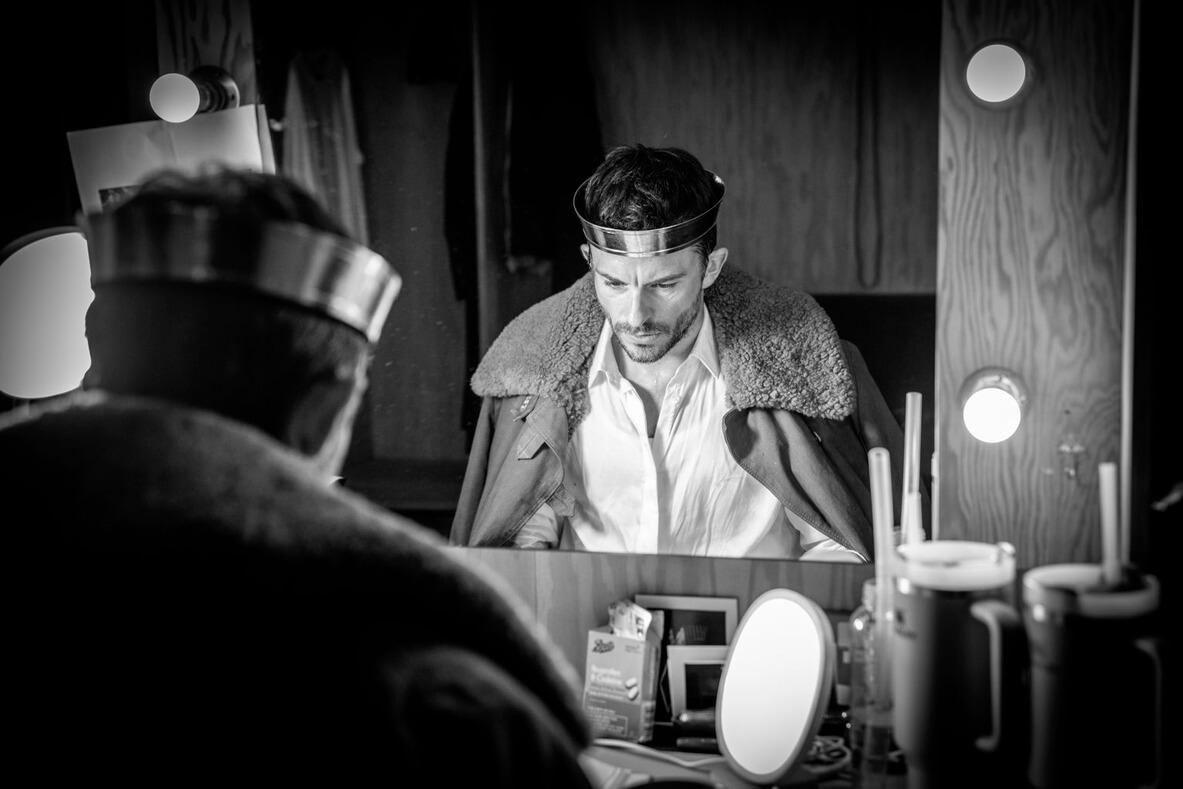In both, characters and story remain mostly unchanged but a new light is shone on the familiar as we are addressed in words we use daily and emotional responses reflect present day attitudes.
Conor McPherson's adaptation gives us an Uncle Vanya, superbly played by Toby Jones, who is both tragic and comic, weak and strong, desperate and resigned. Scruffy, often drunk and hopelessly in love with his brother-in-law's much younger second wife, Yelena, he rails against his situation but when that comes under attack, he fights back with tragi-comic incompetence.
Vanya's best friend, the tall, dark and handsome doctor Astrov, played by the tall, dark and handsome Richard Armitage becomes a love rival as he too falls for the beautiful, and not disinterested, Yelena, a richly nuanced performance by Rosalind Eleazar (who also stars in Copperfield). Married to the boorish professor Serebryakov (a suitably pompous Ciaran Hinds), it's the couples arrival on the estate that ruptures the sedate, paralysed life of the other characters and forces them all to face uncomfortable truths.
Obviously starved of love, and finding Astrov frustratingly blinkered until it's all too late, there is a lovely scene where Yelena seeks companionship with a suspicious Sonya, the youngest member of the household and Vanya's niece (and Serebryakov's daughter from his first marriage to Vanya's sister - do keep up). In many ways, Sonya is the moral centre of the play and in Aimee Lee Wood's characterful performance, and her mixture of naivety and practicality, dreamer and realist, is very moving. Of course she is also, and has been for a long time, in love with Astrov who is too self-centred to see it until, again, it's too late.
This being Chekov, there is the wise, old retainer, Nana (tremendous support from Anna Calder-Marshall) and the bluff, preposterous hanger-on Telegin (great comic turn by Peter Wight). We also get Vanya's revolutionary mother Mariya (Dearbhla Malloy) who is in thrall to the professor, immune to doubt, her pamphleteering and meetings removing her from the estate and her son's life.
Rae Smith's apocalyptic design, she calls it an installation rather than a set, has nature fighting back through the vast, rain-stained windows, and a dimly visible Icon at the back of the stage next to the fire exit with its little blue sign. Taking her cue from McPherson's 'modern rawness' and 'timeless' version of the text, she grasps the opportunity to avoid the 'samovars and silver birches that have become Chekhovian cliches'. I did spot a samovar but this is certainly no cliched production.

 Uncle Vanya - Photo by Johan Persson
Uncle Vanya - Photo by Johan Persson


